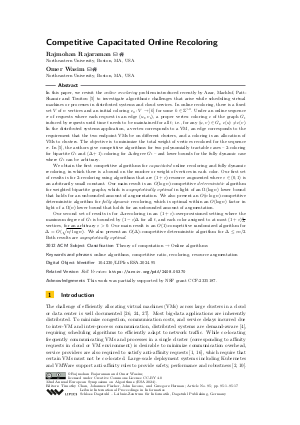LIPIcs.ESA.2024.95.pdf
- Filesize: 0.75 MB
- 17 pages

 Creative Commons Attribution 4.0 International license
Creative Commons Attribution 4.0 International license



















Feedback for Dagstuhl Publishing